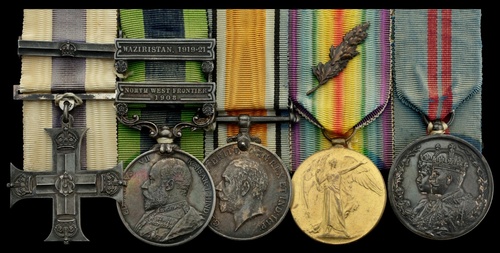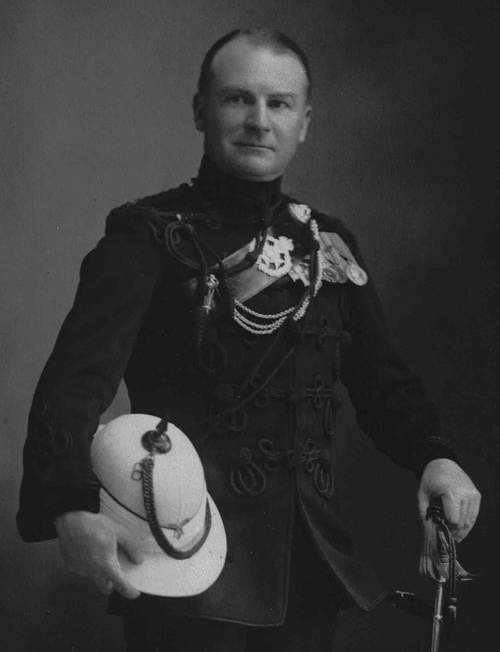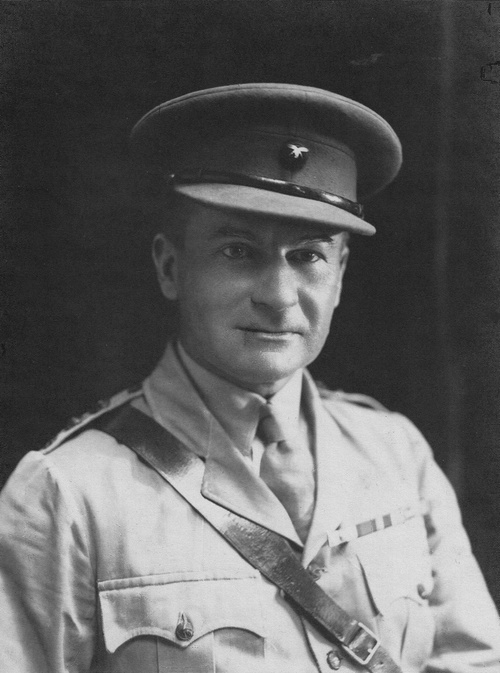Auction: 22133 - Orders, Decorations and Medals - e-Auction
Lot: 1026
The superb 'Crossing of the River Tigris' M.C. and Bar awarded to Lieutenant-Colonel R. Blandy, 9th Gurkha Rifles, who won his first award in the same action that his CO, Major Wheeler, won the Victoria Cross
Military Cross, G.V.R., with Second Award Bar, the reverse engraved 'Captain R. Blandy, 2-9th Gurkha Rifles 23-2-17 3-12-17'; India General Service 1908-35, 2 clasps, North West Frontier 1908, Waziristan 1919-21 (2nd Lt. R. Blandy 1st Rl. M. Fus:); British War and Victory Medals, with M.I.D. oak leaves (Capt. R. Blandy.); Dehli Durbar 1911, mounted court-style as worn by Spink & Son, minor contact marks, good very fine (5)
M.C. London Gazette 25 August 1917.
Second Award Bar to M.C. London Gazette 11 January 1919:
'For conspicuous gallantry and devotion to duty [in early December 1917]. He commanded with great ability a patrol which, under the fire of the enemy, discovered after dark a ford over the [Diyala] river by which troops crossed on the following night. But for his intrepid action the troops would not have been able to cross.'
Raleigh Blandy was born on 22 May 1884 at Madeira, a scion of the famous Blandy family that controlled the Madeira Wine and Shipping trades. Commissioned into the Indian Army on 29 August 1906, he served with the 1st Battalion, Royal Munster Fusiliers during the Mohmand campaign 1908 before transferring to the 2nd Battalion, 9th Gurkha Rifles. In December 1911, his unit, as part of the Dehra Dun Brigade, took part in the Coronation Durbar in Delhi (Medal).
From April-October 1913, he commanded a group of 11 Gurkhas who were signallers assigned to the Triangulation Survey Party in the Pamirs.
Promoted Captain on 29 August 1915, during the Great War he served with his unit in Mesopotamia from late September 1916. The crossing of the River Tigris was to be the Battalion's first operation in the face of the enemy; they only arrived in the forward area a fortnight earlier and not previously been under fire. Additionally, a large proportion of the Gurkhas were young soldiers, in reality mere boys, who had only been enlisted since the outbreak of the Great War.
For the 14th Division to force a crossing over the River Tigris, its 37th Brigade was tasked to deploy a covering force on the opposite bank to secure a bridge-head, so as to allow a pontoon bridge to be built across the River. Blandy and his comrades were one of three Battalions to undertake the crossing, along with the 2nd Battalion, Norfolk Regiment and the 1st Battalion, 2nd Gurkha Rifles. Each of the Battalions were to be ferried across in pontoons, approximately one Company lift at a time, to three separate landing points. The Tigris had an average width of 400 yards and at the time was swollen with flood water and a strong current. The 2nd Battalion began its first Company crossing in pontoons, crewed by soldiers of the 1/4th Battalion, Hampshire Regiment, under the command of a Major George Campbell Wheeler, just before first light. Halfway across, it started to come under enemy fire, which became more intense as the boats approached the shore. Having disembarked the Company, which now fought its way inland to establish a foothold, the pontoons returned for the next Company lift, to be commanded by Captain Blandy.
However, because of enemy shell fire and the strong current, only six of the original thirteen pontoons were able to make the return to lift Blandy's Company for the second crossing. These again came under intense enemy fire as they crossed, during which Blandy was hit twice in the sleeve of his jacket. Just as he disembarked, he was wounded in the abdomen, but the bullet fortunately was deflected by his belt buckle. With only one and half Companies ashore, a loss of all its boats and the intensity of enemy fire, the remainder of the Battalion were now diverted to an alternative crossing route, which had been established by 2nd Norfolks virtually unopposed. By mid-afternoon all three Battalions were across the Tigris and digging-in, allowing the pontoon bridge to be laid for the remainder of the Division to cross. During the day the unit had captured some 200 prisoners, at a cost of 107 casualties to include seven British officers, two of whom were killed.
For this action, Major Wheeler was awarded the Victoria Cross and Blandy added the M.C. to his laurels. It also became the 2nd Battalion's seminal Battle Honour for The Great War.
The 2nd Battalion continued to serve in Mesopotamia until February 1919, when it returned to India. Besides the Bar to his M.C., Blandy was also twice 'mentioned' (London Gazette 15 August 1917 & 12 March 1918, refers).
In May 1918, he transferred to the newly-raised 4th Battalion, 11th Gurkha Rifles as a Company Commander, which proceeded to take part in the final Palestine campaign, and continued to serve with them until their disbandment in India in late 1919. Returned to the 9th Gurkhas, Blandy was promoted Major on 29 August 1921 and by 1927 was serving with the Burma Military Police. He returned to his unit in 1928 and was appointed Second-in-Command, served with in the Malakand. Promoted Lieutenant-Colonel on 3 June 1932, he commanded the 2nd Battalion from 1932 until his retirement on 1 January 1935. This included a two-year tour in eastern Bengal in support of the civil authorities who were facing unrest, before returning to Dehra Dun to hand over command. In retirement, he returned to his home in Wales with his wife, Lorna (née Lloyd), whom he had married in 1922, where they lived in Carmarthen. After the Second World War, he joined the newly formed Regimental Association, but in later years resigned due to blindness. The Lieutenant-Colonel died in 1967; sold together with two original photographs of the recipient.
Subject to 20% VAT on Buyer’s Premium. For more information please view Terms and Conditions for Buyers.
Sold for
£3,800
Starting price
£2000









